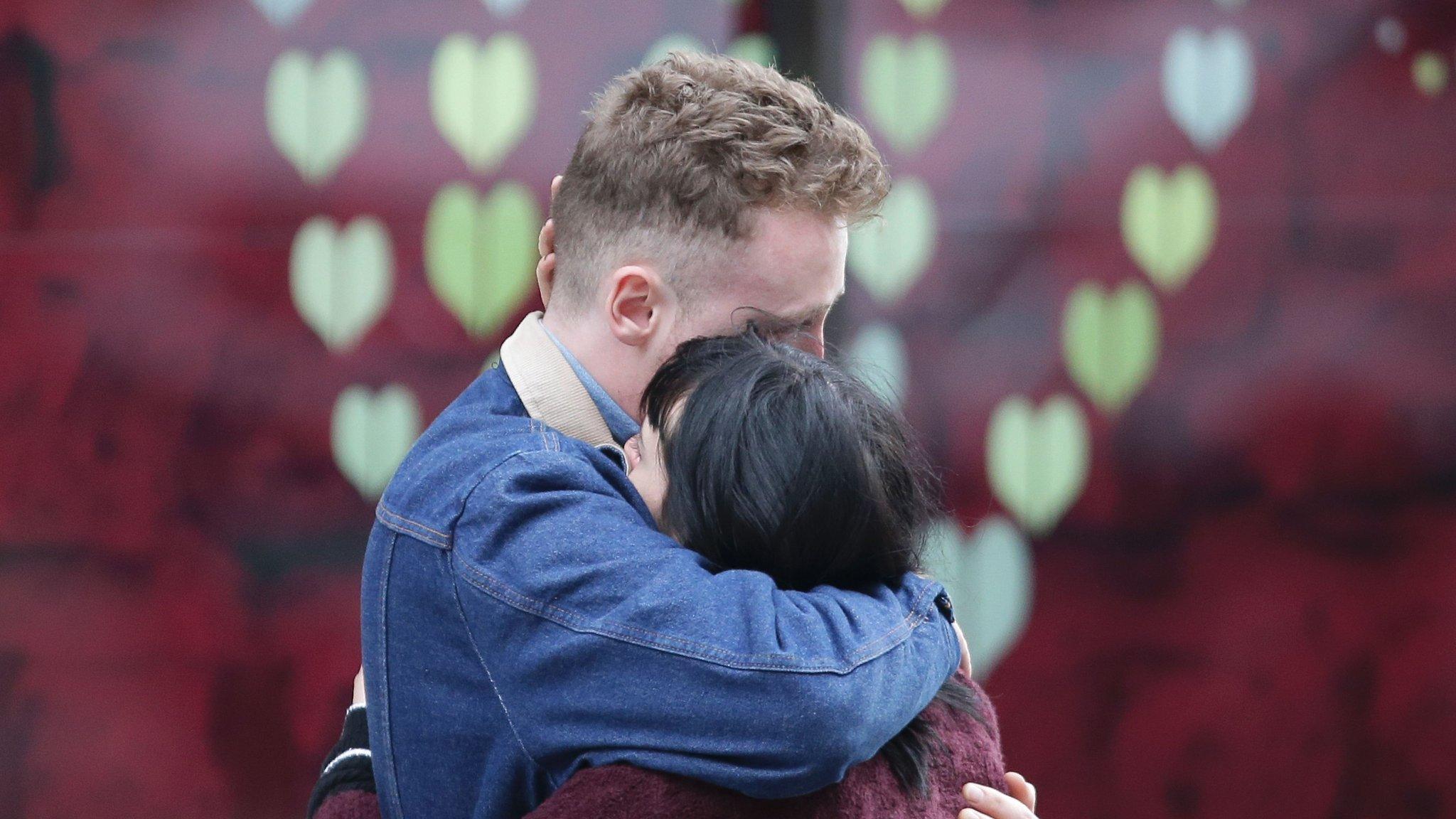London Bridge attack inquests: Doctor left bar on lockdown to help victims
- Published
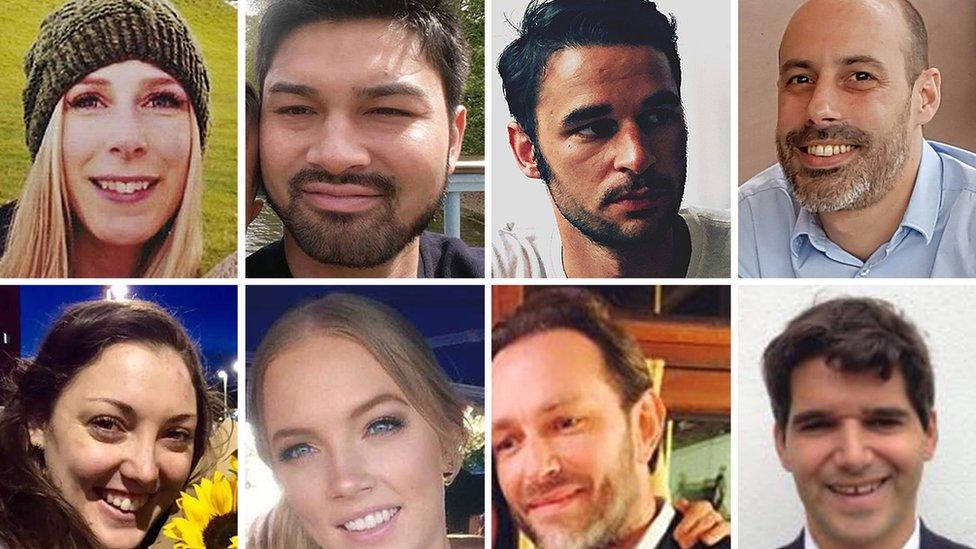
The victims of the attack clockwise from top left - Chrissy Archibald, James McMullan, Alexandre Pigeard, Sébastien Bélanger, Ignacio Echeverría, Xavier Thomas, Sara Zelenak, Kirsty Boden
An off-duty doctor begged to be let out of a restaurant on lockdown during the London Bridge attacks so that he could help injured victims, an inquest heard.
Staff at Lobos tapas bar locked the door to the restaurant as three men stabbed people on Borough High Street on 3 June 2017, the Old Bailey heard.
But junior doctor Jonathan Moses said he persuaded staff to let him out when he said: "I can't watch them die."
Dr Moses said he then told one of the wounded: "I'm going to save you."
The medic, who at the time had four months' experience as an accident and emergency medic, had been having dinner with a friend when he heard people "shouting and screaming" in the street outside.
"I could hear people saying 'Oh God, oh God, help, help, they've been stabbed, they've been stabbed'," he told the inquest into the deaths of eight people killed in the attacks.
Dr Moses said he ran downstairs to the restaurant door after seeing two people lying on the pavement outside.
"The place was in a panic - people running away from the door, people screaming," he said.
He said he told a member of staff who was guarding the door to let him out because he was a doctor.
"He said 'There's people being attacked, I can't let you out'," Dr Moses said.
"I said 'I can't watch them die. You have to let me out and just lock the door after me to keep people safe'."

'Treat this like a warzone'
BBC reporter Francesca Gillett, at the inquest
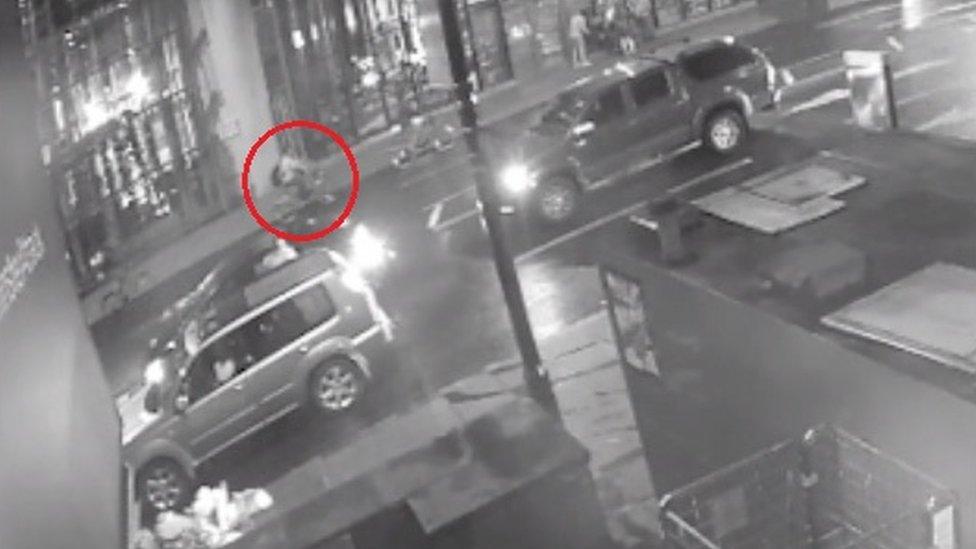
The court saw footage of Ignacio Echeverría on a Santander bike moments before he was killed
Dr Moses looked visibly relieved as he finished giving his evidence. He had only been a junior doctor for about 18 months when he found himself at the centre of the horror unfolding at London Bridge.
He briefly became upset as he shakily recounted persuading the manager of Lobos to let him go and help.
The court heard him recall that he was calm and on "autopilot" when he rushed out of the restaurant.
He went on to treat other victims including Ignacio Echeverría. He helped to carry him across London Bridge and continued chest compressions while running.
He then remembered being told by an air ambulance doctor at the scene: "You have to treat this like a warzone."
The court was shown a triage sheet from the scene, listing the victims and grading their priority for being taken to hospital.
It was a stark reminder of the decisions doctors had to take that night.

Once outside, Dr Moses approached a wounded woman, now known to have been Marie Bondeville.
"She kept saying she's going to die," he told the court.
"I held her hand. I told her 'You are not going to die. I'm going to save you'," he said.
Ms Bondeville was one of 48 people hurt when Rachid Redouane, Youssef Zagbha and Khuram Butt drove a van into pedestrians on London Bridge before stabbing people at random.
She survived the attack.
Dr Moses said he spent about four or five minutes with Ms Bondeville before moving on to help perform CPR on Ignacio Echeverría.
Mr Echeverría, 39, had run towards the attackers and tried to beat them with his skateboard when he saw one of them stab Ms Bondeville, according to testimony from his friend Guillermo Sanchez-Montisi.
'My son did what he had to do'
Mr Echeverría, Mr Sanchez-Montisi and another friend were cycling along Borough High Street after a day's skateboarding on the South Bank when they saw an injured man running away from London Bridge.
The court was shown CCTV footage of Spaniard Mr Echeverría getting off his bike and running to join PC Wayne Marques and off-duty PC Charles Guenigault who were trying to intervene as the attackers stabbed Ms Bondeville and Oliver Dowling.
Mr Echeverría, who worked for HSBC as part of a team fighting money laundering, could then be seen swinging his skateboard at Redouane.
Redouane made a stabbing motion towards Mr Echeverría, who fell to the ground. The footage then showed Zagbha and Redouane attacking him.
Mr Sanchez-Montisi said in a statement read in court: "From the way they were attacking people it was clear that their intentions were to kill everyone."
He said there was a woman, now known to be Ms Bondeville, on the floor being stabbed repeatedly.
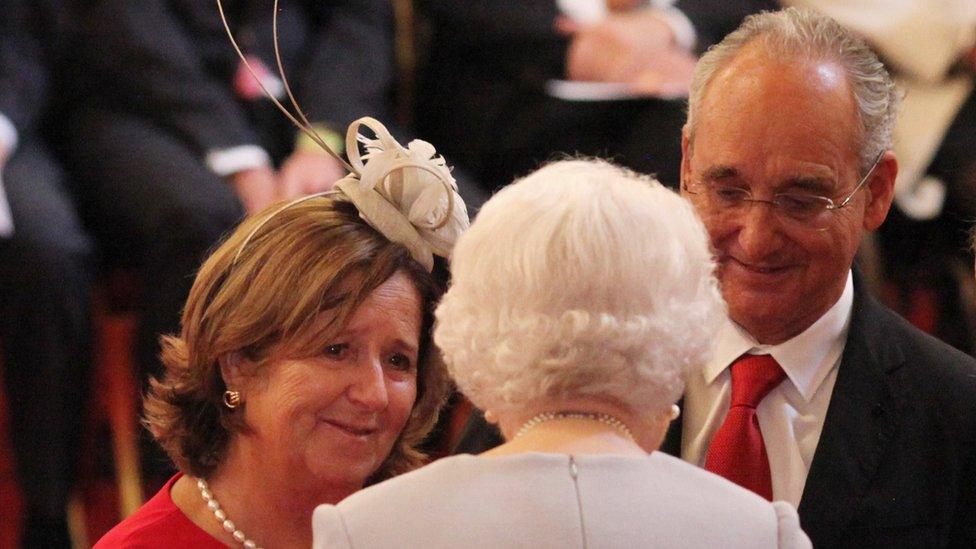
Mr Echeverría's parents accepted their late son's George Medal from the Queen in October last year
Describing the moment Mr Echeverría grabbed his skateboard and approached the attackers, Mr Sanchez-Montisi said: "It was like he didn't even think about it, but reacted immediately."
"One of the attackers was covering his head as Ignacio was hitting him with the skateboard... then suddenly Ignacio was on the floor," he added.
Mr Sanchez-Montisi said his friend then attempted to fend off the attackers' blows with his skateboard before one of them stabbed him.
Mr Echeverría was posthumously awarded the George Medal for his actions.
His father, Joaquín Echeverría, said the family has not attended the inquest as "a gesture to show we have complete faith in the justice system in England".
Continuing his evidence, Mr Sanchez-Montisi said the knifemen looked "prepared, professional".
He said he had to run away because he felt he might become their next target after one attacker "looked straight at me".
"When he was looking at me, his face, he looked like the devil," he added. "It was very painful to leave my friend but we were going to be next."
"I would not wish the feeling impotence, of not being able to do anything, on anyone, even my worst enemy", he said.
Evidence has already been heard in relation to the seven other victims: Xavier Thomas, Chrissy Archibald, Sara Zelenak, James McMullan, Sébastien Bélanger, Alexandre Pigeard and Kirsty Boden.
The inquests continue.
- Published17 May 2019
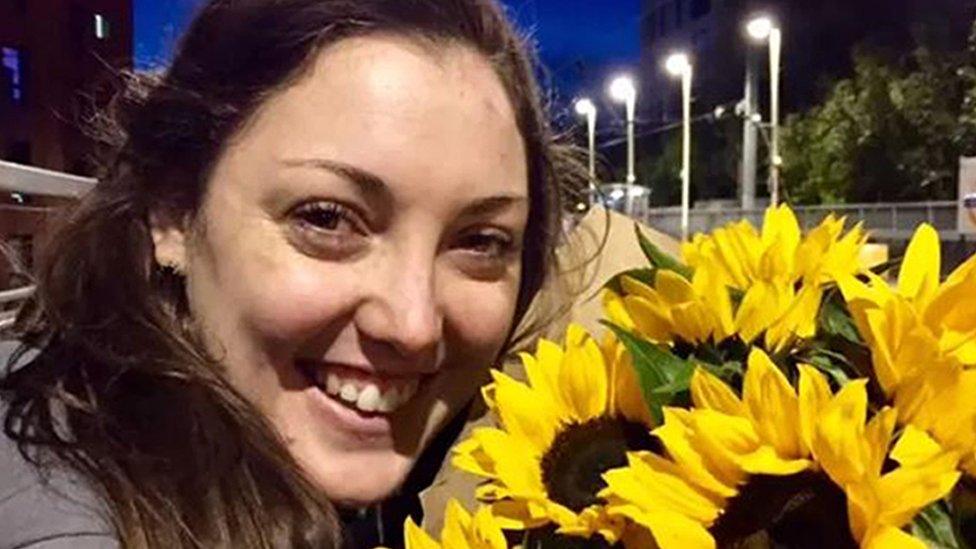
- Published16 May 2019
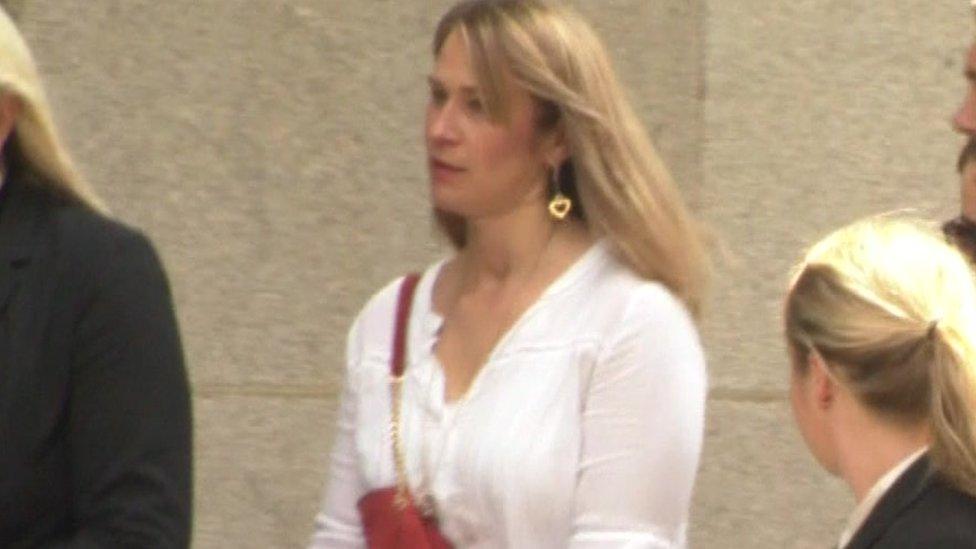
- Published15 May 2019
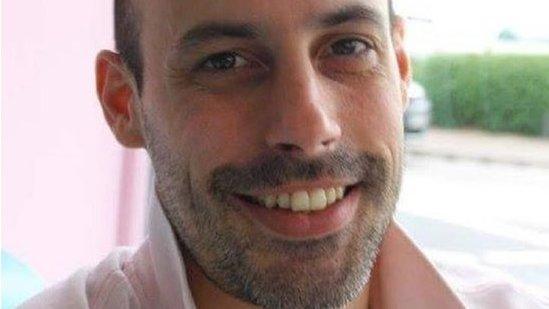
- Published14 May 2019
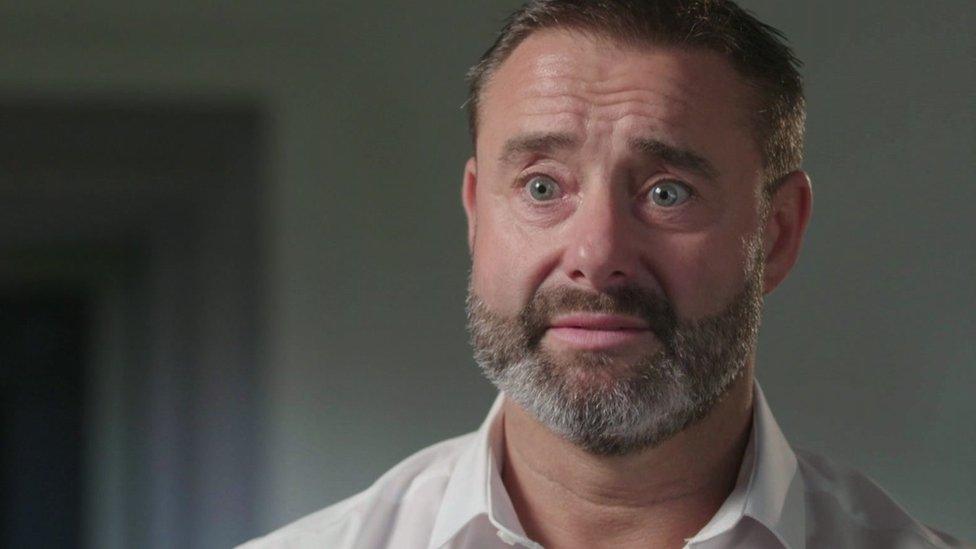
- Published13 May 2019
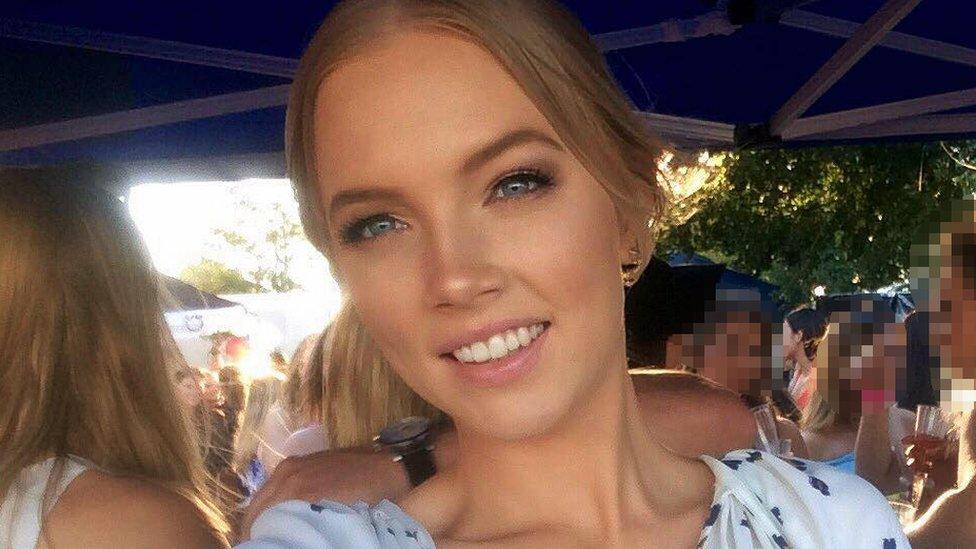
- Published10 May 2019
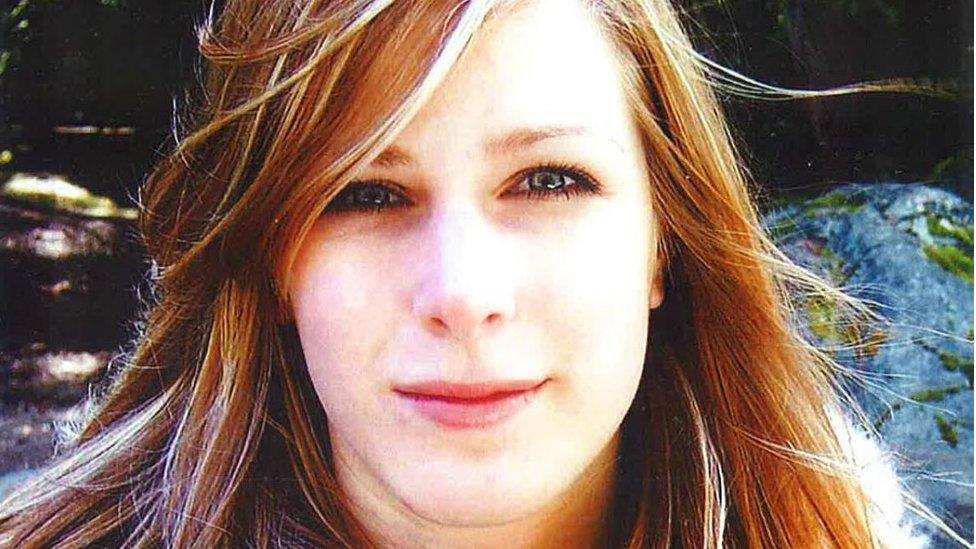
- Published10 May 2019

- Published9 May 2019
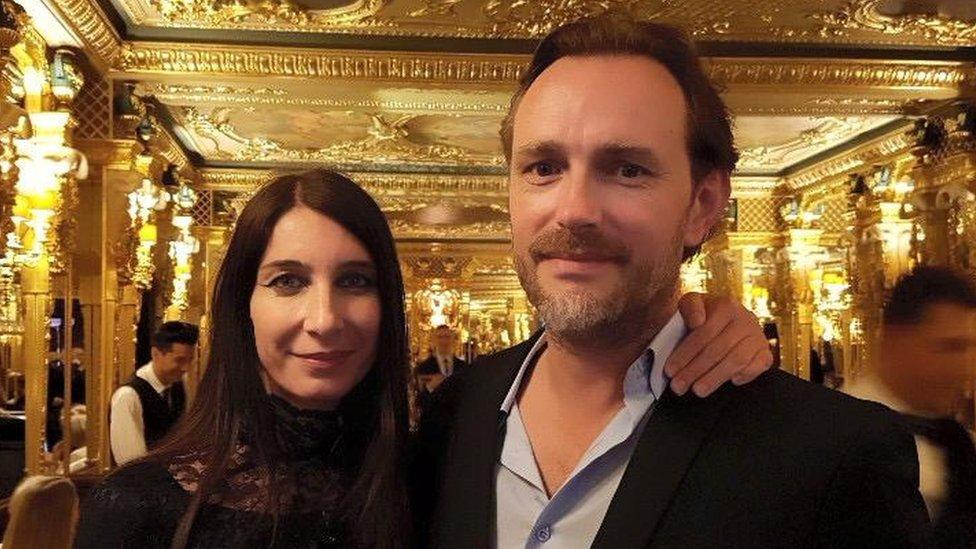
- Published8 May 2019
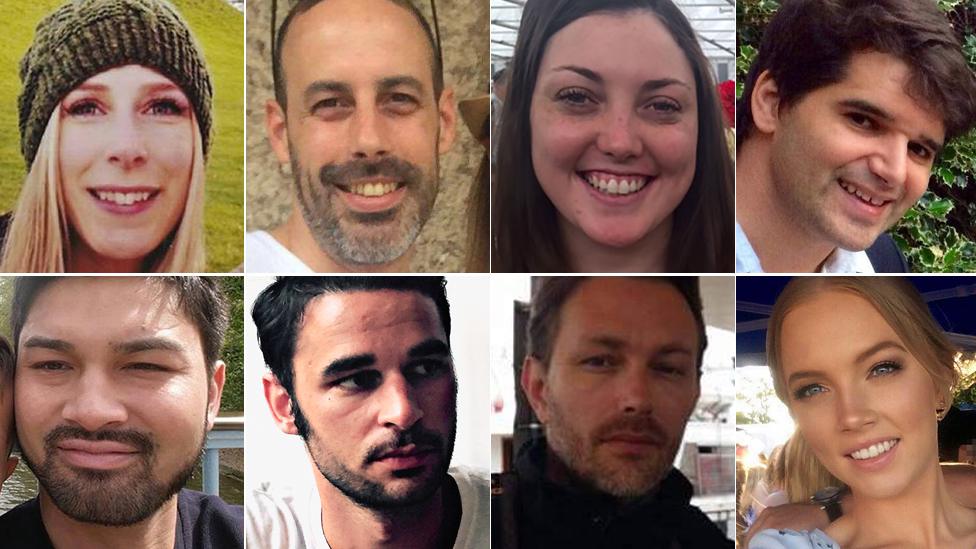
- Published7 May 2019
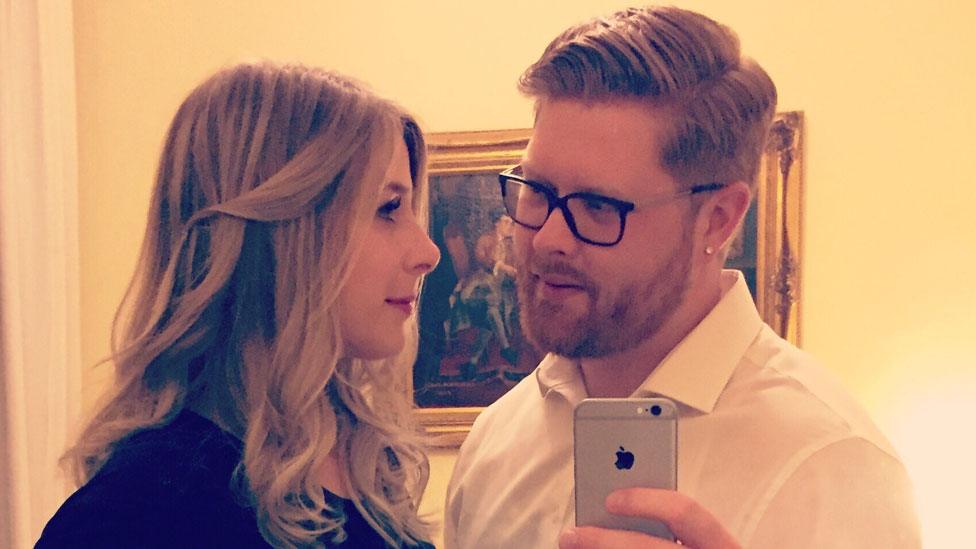
- Published22 May 2019
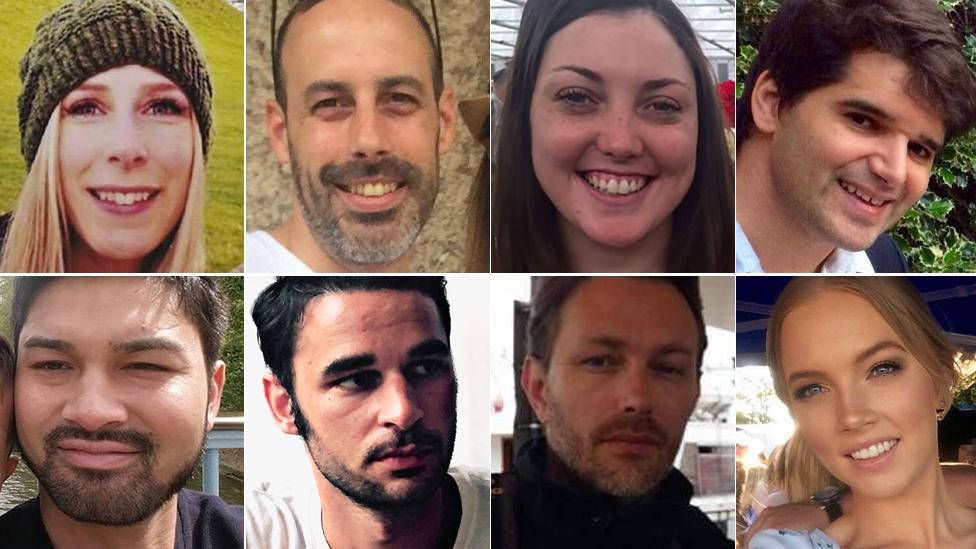
- Published3 May 2019
